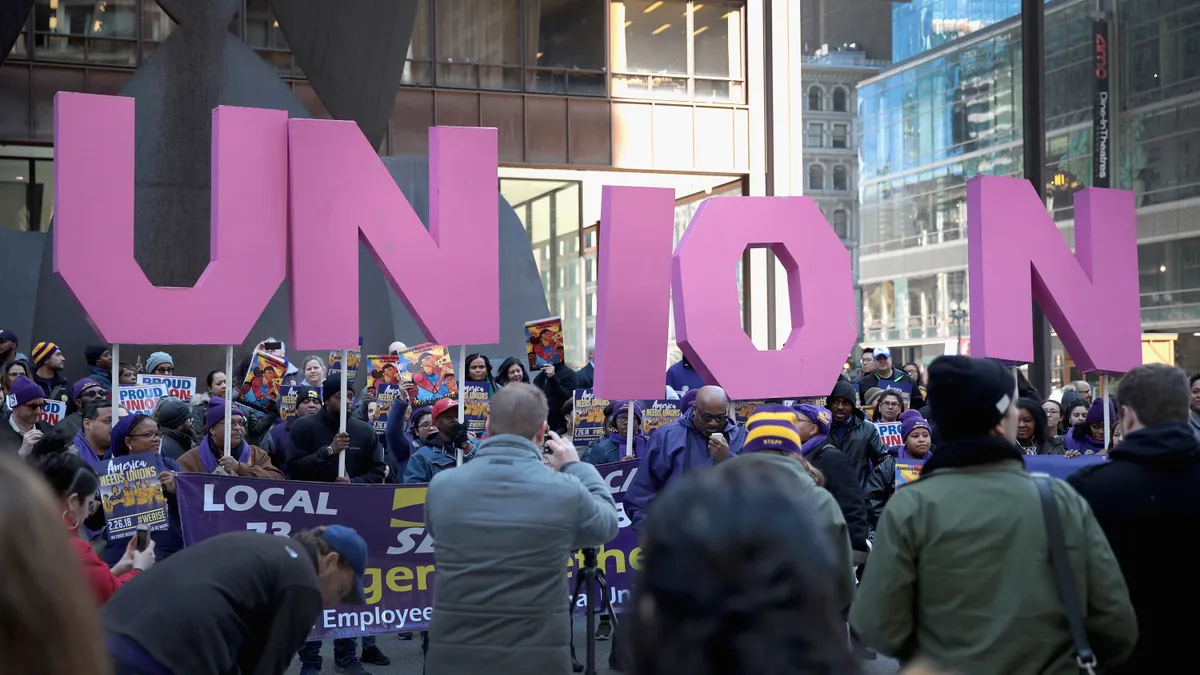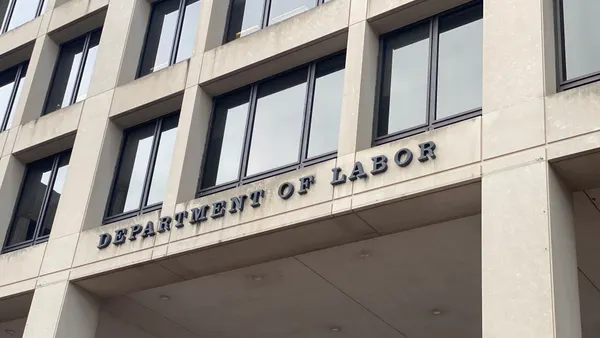Dive Brief:
- The solicitation of mail ballots constitutes objectionable conduct, the National Labor Relations Board ruled unanimously June 9 (Professional Transportation, Inc. and United Electrical, Radio, and Machine Workers of America (U.E.), Local 1077. Case 32‒RC‒259368).
- In June 2020, a railroad employer whose employees had recently voted to unionize filed two objections alleging that representatives of the union petitioner had contacted employees via phone call and text messages with offers to help the employees fill out and submit their ballots. While the case was initially overruled by a regional director without a hearing due to mail-ballot solicitation not having been deemed objectionable conduct, the employer filed a request for review based on the "substantial question of policy" raised by the case, and the Board granted the request.
- The Board found mail-ballot solicitation to be objectionable conduct because it casts doubt on the integrity of the election and secrecy of the ballots and suggests to employees that the soliciting party is officially involved in running the election. However, the NLRB concluded that such conduct would only cause an election to be set aside if evidence showed that the ballot solicitation affected a "determinative" number of votes.
Dive Insight:
Union membership hovers around 11% of the worker population — roughly half the membership rate of 1983, when the U.S. Bureau of Labor Statistics first began recording membership numbers — but organized labor has gained increasing attention over the past year.
The Biden Administration has positioned itself warmly toward unionization, with President Joe Biden signing an executive order explicitly encouraging worker organizing and collective bargaining and forming a task force on worker organizing and empowerment. Biden also selected Marty Walsh, a former union leader, as secretary of labor.
Labor professionals closely followed the recent efforts from some workers at a Bessemer, Alabama, Amazon fulfillment center to organize. While the organizers were soundly defeated in their efforts, the Retail, Wholesale and Department Store Union, which the organizers were petitioning to join, later filed objections, alleging the company said in an email that it would conduct layoffs if the unionization effort prevailed and that company agents threatened that the facility would close.
In addition, Amazon’s installation of a mailbox on its grounds for voting has become a touchstone in the fight over whether or not the election was legitimate. With both the Amazon fight and the NLRB’s decision regarding mail-ballot solicitation, tensions surrounding the conduct of union elections demonstrate how powerful the implications of unionization are for workers and employers.












